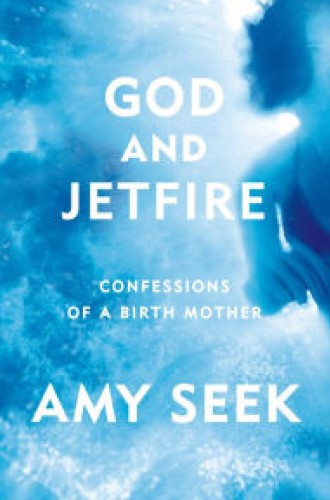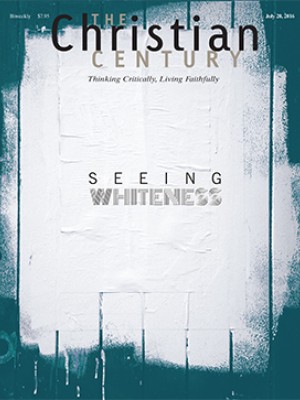Ambivalent motherhood
Amy Seek was a 22-year-old architecture student thinking about breaking up with her boyfriend when she found out that she was pregnant. God and Jetfire recounts her journey from that moment through the next ten years. She is an exquisite narrator of the story: the difficult decision over whether to have an abortion, release the baby for adoption, or keep the baby; the moment when her boyfriend suggests that they choose to be a family and she refuses; the search for the right adoptive parents; and the years that follow as Seek lives with the consequences of her choice, “the early seed of a lifelong grief.”
Roughly the first half of the book is a story of pregnancy and birth told in extraordinary detail. Seek takes us through excruciating moments when she and her ex-boyfriend decide to pursue an open adoption. With them we read profiles of adoptive parents and many of 111 questions that they put together for prospective parents. My favorite: What do you do with holey socks? We attend birthing classes with them. We are at the birth and spend the next painful days with Seek as she tries to decide whether she can, in fact, sign over her parental rights.
Read our latest issue or browse back issues.
What I learned from all this is the fierceness and tenacity of motherhood. The nine months a child spends growing inside a mother—even if that mother is ambivalent (and I think a lot of mothers are)—changes a woman chemically, emotionally, and physically. That change cannot be undone, and in Seek’s case, the physical reality of her son, the very tangible way that he is a part of her, will not go away. He is with her everywhere she goes, even though, as she says paradoxically, “I would never, ever, ever be my son’s mother.”
The second half of the book is about the long-term aftermath. For the ten years after her son’s birth, Seek struggles to finish school and prove that her education and career are worth giving him up. She moves from city to city and from controlling relationship to controlling relationship, chasing a dream that she cannot fully articulate. She is clear that the decision to release her son for adoption and the hold that he has on her is part of why she cannot find and claim this dream. Here the book loses momentum, delivering beautifully written but never resolved sentences about doubt. Seek cannot seem to decide if she has a right to her own story or if the rest of her story has to be handed over to her son.
I wondered if there was a spiritual story under this story, one that Seek decided not to tell. Religion roams around the edges of the narrative: Seek’s mother is Catholic, her sister is married to a minister, the adoptive family was educated in theology at Duke and converted to Catholicism. We learn or can intuit quite a bit about everyone’s religious identity but Seek’s. She goes to church occasionally. She tells her son’s biological father that she wants the adoptive family to be Christian. And the root of memoir is Augustine’s Confessions, which Seek explicitly invokes in her subtitle. I kept wondering, What are you not saying? What would the Confessions be if Augustine had decided not to narrate his conversion? What would God and Jetfire be if Seek had decided to write it as a letter to God?
I am not typically someone who wants people to put all their religious cards on the table. But through this whole restless book, I felt that Seek was refusing to tell us about some meaning she was making about her experience. What she tells us about her seeking self is believable, but ultimately unsatisfying.







